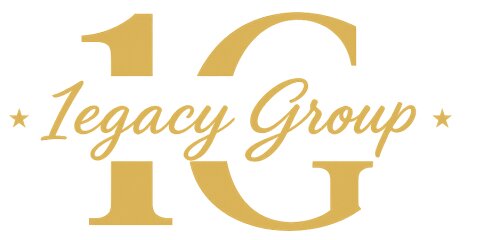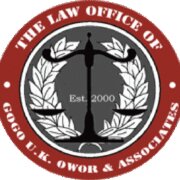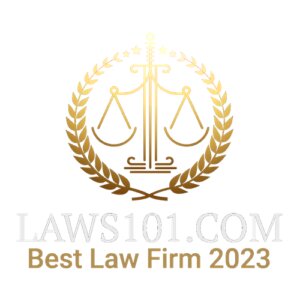Best Licensing Lawyers in Houston
Share your needs with us, get contacted by law firms.
Free. Takes 2 min.
List of the best lawyers in Houston, United States
United States Licensing Legal Questions answered by Lawyers
Browse our 1 legal question about Licensing in United States and read the lawyer answers, or ask your own questions for free.
- How do I legally protect my idea before selling or licensing it to a company?
- I have a makeup product idea that I want to sell or license, not the product itself. It is influenced by a product that was recently launched. Therefore, I want to sell/license to the company that launched said product. After some research, I contacted a patent attorney who explained that... Read more →
-
Lawyer answer by P.O OHIKHENA & Co
Good day,A patent will not be applicable since it's still an idea. You can go into an MOU(Memorandum of understanding) with the said company and also an NDA.You can contact me for my insight. Visit our profile and send us...
Read full answer
About Licensing Law in Houston, United States
Licensing law in Houston, Texas, covers a variety of activities and businesses that require official permission from city, county, or state authorities. Common licenses include those for operating a business, selling alcoholic beverages, conducting professional services (such as legal, medical, or technical work), building and construction work, and specialized activities like food handling or child care. The goal of licensing laws is to ensure that businesses operate safely, meet all regulatory requirements, and protect the public.
Houston, as one of the largest cities in Texas, has unique licensing requirements and processes that can sometimes be complex and vary depending on the type of activity or business. Understanding local licensing laws is important for individuals and businesses to remain compliant and avoid penalties.
Why You May Need a Lawyer
There are many situations in which seeking the advice of a lawyer experienced in licensing law can be beneficial, including:
- Determining which licenses are required to start or operate a business in Houston
- Applying for, renewing, or transferring business or professional licenses
- Dealing with license suspensions, revocations, or denials
- Responding to compliance investigations or enforcement actions from regulatory bodies
- Challenging or appealing adverse licensing decisions
- Understanding changes in licensing regulations or requirements
- Addressing legal risks related to operating without the proper licenses
A lawyer can help interpret complicated legal language, ensure timely and correct filings, negotiate with authorities, and represent your interests in any hearings or court proceedings.
Local Laws Overview
Houston’s licensing landscape is influenced by both city ordinances and Texas state laws. Key local aspects to consider include:
- Business Licensing: Most businesses must obtain a license or permit from the City of Houston. Certain industries, such as food services, healthcare, liquor sales, or construction, may require additional state or county licenses.
- Professional Licenses: Professions such as law, medicine, engineering, and real estate are regulated by state licensing boards. These boards set out qualification, renewal, and disciplinary standards.
- Zoning and Land Use: The City of Houston does not have zoning laws, unlike most major cities. However, it still enforces specific ordinances and restrictions based on location, including those impacting licensing for certain business activities.
- Alcohol Licenses: Selling or serving alcohol requires licenses from the Texas Alcoholic Beverage Commission (TABC) and often local approval.
- Health and Safety Permits: Establishments dealing with food, health care, or child care require permits and regular inspections by various local and state agencies.
- Enforcement and Penalties: Non-compliance with licensing rules can lead to fines, business closure, loss of license, or even criminal charges in severe cases.
It is crucial to know which authority governs your license and comply with all specified rules and deadlines.
Frequently Asked Questions
What types of businesses require a license in Houston?
Most businesses operating in Houston require some type of license or permit, including retailers, restaurants, bars, construction companies, child care centers, and more. Some home-based businesses may also require permits.
How do I find out which licenses my business needs?
You can contact the City of Houston’s Office of the City Secretary, the Harris County Clerk, or relevant Texas state licensing boards. Many agencies offer online tools and checklists, but consulting a lawyer can help clarify unique or complex situations.
What is the process for applying for a business license in Houston?
The process usually involves filling out applications, providing identification and business documentation, paying fees, and sometimes undergoing inspections or background checks. Steps vary by business type and location.
Can my license be denied or revoked?
Yes. Licenses can be denied or revoked due to incomplete applications, failure to meet eligibility requirements, non-compliance with local regulations, or criminal background issues. There are often appeal processes available.
How long does it take to obtain a license?
The time frame varies widely depending on the type of license. Some permits can be issued within days, while others, such as liquor licenses, may take several months due to background checks and public notice requirements.
Do I need a state license or just a local license?
Certain activities require both a state and a local license. For example, opening a restaurant requires city health permits and potentially a state license for food handling. Legal or healthcare professions require a state license.
What happens if I operate without a license?
Operating without the required license can result in fines, orders to cease operations, loss of business, or even criminal prosecution in serious cases. Repeated violations can result in serious, long-term consequences for your business.
Can I transfer my license to another person or location?
Some licenses are transferable, while others are not. The rules depend on the license type and the issuing authority. Many licenses require approval for any transfer or change in ownership or location.
What are my options if my license application is denied?
If your license application is denied, you may often appeal the decision or correct any deficiencies identified by the licensing authority. Legal assistance can help you navigate the appeals process.
How can I stay up-to-date with changes in licensing laws?
Regularly check official government websites, subscribe to industry newsletters, or consult with a licensing attorney or professional association to stay informed about changes that may affect your business or profession.
Additional Resources
Here are some resources that can help you with licensing matters in Houston:
- City of Houston - Office of the City Secretary: Handles many local business and permit applications.
- Harris County Clerk’s Office: Issues certain local licenses and maintains records.
- Texas Department of Licensing and Regulation: Oversees various professional and occupational licenses.
- Texas Alcoholic Beverage Commission (TABC): Responsible for all matters related to alcohol licensing.
- Houston Public Health Department: Issues health-related permits and food establishment licenses.
- Professional Associations: Many have dedicated resources and guidance for licensing in specific fields (such as the State Bar of Texas or Texas Medical Board).
- Legal Aid or Referral Services: Organizations like the Houston Bar Association offer lawyer referral and informational services.
Next Steps
If you believe you need legal assistance with a licensing matter in Houston, consider the following steps:
- Gather all relevant information, including business details, previous permits, communications with authorities, and any notices received.
- Outline your goals, such as obtaining a new license, resolving a dispute, or appealing a decision.
- Contact an attorney experienced in licensing law in Houston. Bring all your documentation to your first meeting.
- Consult public resources or reach out to government agencies for any preliminary questions.
- Follow your attorney’s guidance, keep records of all applications and correspondence, and remain proactive about deadlines and renewals.
Licensing issues can be complex and time-sensitive. Promptly seeking advice and understanding your obligations will help you protect your business and professional interests in Houston.
Lawzana helps you find the best lawyers and law firms in Houston through a curated and pre-screened list of qualified legal professionals. Our platform offers rankings and detailed profiles of attorneys and law firms, allowing you to compare based on practice areas, including Licensing, experience, and client feedback.
Each profile includes a description of the firm's areas of practice, client reviews, team members and partners, year of establishment, spoken languages, office locations, contact information, social media presence, and any published articles or resources. Most firms on our platform speak English and are experienced in both local and international legal matters.
Get a quote from top-rated law firms in Houston, United States — quickly, securely, and without unnecessary hassle.
Disclaimer:
The information provided on this page is for general informational purposes only and does not constitute legal advice. While we strive to ensure the accuracy and relevance of the content, legal information may change over time, and interpretations of the law can vary. You should always consult with a qualified legal professional for advice specific to your situation.
We disclaim all liability for actions taken or not taken based on the content of this page. If you believe any information is incorrect or outdated, please contact us, and we will review and update it where appropriate.











